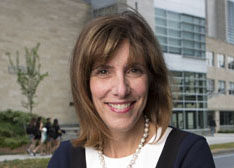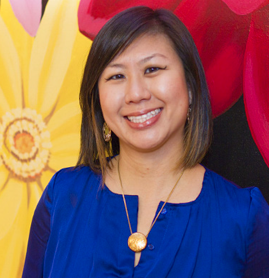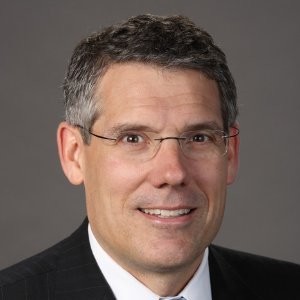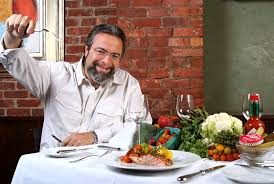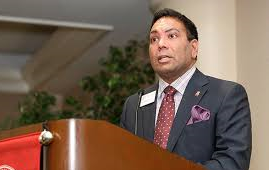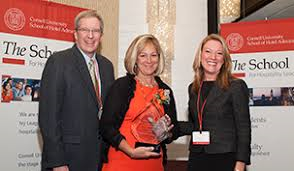Claudia Choi, a junior in the Hotel School, had the chance to interview Robert Cole ‘81, Founder and CEO of RockCheetah.
Robert, has vast experience in different fields of hospitality, working with Four Seasons as Corporate Director of Marketing Planning, Sabre as Director of Hospitality Development, and Cendant as Vice President of Hotel and Car, in addition to being involved in three startups. His company, RockCheetah, is a hotel marketing strategy and travel technology consulting company. It assists global hospitality and travel organizations create successful marketing strategies and execute business processes, helping a wide range of clients from National Geographic and Marriott to the US government. He also serves as Phocuswright’s Senior Research Analysts for Lodging and Leisure Travel.

Robert Cole ’81
What inspired you to create RockCheetah, your marketing and travel tech consulting company?
Marketing and technology were always interests. Four Seasons gave me an incredible opportunity to prove myself during a summer internship for three sales & marketing vice presidents at their corporate office in Toronto. After graduating and working in pre-opening sales, I took over the property computer systems, since I already had operational experience in front office and food & beverage working during the summers at Sun Valley Resorts and Yellowstone National Park. There were challenges, like living on property and working 120-hours per week through a property opening, but it proved to be an extremely valuable experience.
After heading marketing for an economy lodging group, starting a global representation firm for four and five-star properties, running Sabre’s platform that was handling 50% of the world’s automated hotel bookings at the time, and starting up a company that introduced dynamic packaging to the travel industry, I felt it was time to start something new. Through RockCheetah, I was inspired to take my diverse hospitality experiences, to help my clients prove that marketing, technology and exemplary service could peacefully coexist. Since then, through RockCheetah, I have worked on a variety of fascinating projects like helping National Geographic create its Lodges soft-brand, Marriott develop its packaged vacations strategy and the US government and travel technology investors with some things I can’t discuss…
Did you envision this is where you would be? Can you describe a decision that you have made that you believe has helped shape the you of today?
I let my career path evolve organically as opportunities arose. I never planned to be where I am today – a self-described strategic plumber. Every decision I have made, or witnessed, has helped me grow to become more successful. I truly love my job and I am passionate about what advances the capabilities of the hospitality industry. I always challenge myself and my clients to exceed the expectations of their customers by delivering outstanding service.
Making organizations more profitable through strategy is baked into my DNA. It hasn’t always been an easy journey. I’ve sadly seen some companies make horrible decisions – sometimes due to fear, ineptitude, lack of quality data, or failing to listen to staff or partners – that were nearly always avoidable. Problems typically arise from inconsistencies between organizational business goals, strategic departmental initiatives and the operational tactics employed through core business processes. When leading a team, it’s critically important that expectations are clearly defined, that they consistently align with the corporate mission and that employees have the tools available to succeed. Then, if a gap is identified, discussions about any changes required to achieve expectations get pretty simple and the solutions can be collaborative.
On your website, RockCheetah.com, you describe that through your career you have been fortunate to have learned from highly respected and influential business leaders in the fields of travel, marketing and technology. Can you elaborate on your experiences?
I have been fortunate enough to work with some true visionaries through the course of my career. For example, I have been able to witness the transformation of Four Seasons from a small Canadian company to what it is today, through the course of my eight years working there. I saw Isadore Sharp, ensure the “Golden Rule” applied equally to staff, owners, investors, vendors and guests.
When a houseman responsible for overnight shoeshine accidentally separated all the shoes from the bags with their room numbers at 3:00am, nobody got yelled at or fired. The resident manager, director of housekeeping and chef quickly created and executed a plan to send notes to the impacted guests explaining the mix-up and inviting them to housekeeping for breakfast to retrieve their shoes. The guests loved it. They turned a negative into a positive, then fixed the process to make certain it would never happen again.
I’ve seen how Chiat Day advertising (the geniuses behind Apple’s breakthrough campaigns) organized their offices to eliminate silos and have every team member focused on how consumers would respond to a message or image given the context of their lives and the media. I have dozens of similar examples where the organizations encourage and empower their staffs.
Have you ever faced any challenges working with foreign markets? For example, on your website, you have described working with Japanese investors in the 90’s to create a business plan and financial statement for a joint venture.
Yes, I worked for six years on a startup where Saison Group was the primary investor, so I spent some time in Tokyo. It was fascinating to see how Yuji Tsutsumi handled our small business with the same care and attention as other massive entities across a diversified portfolio of holdings.
I’ve always found that trying to accommodate the regular business hours of an overseas partner was very beneficial. With Japan, there was a 15-hour time difference. At Neat Group, our development team was in Tel Aviv, so in addition to the time difference, we built processes that would help take advantage of crossing Sunday-Thursday with Monday-Friday work weeks.
In an international, multicultural setting, I try to be sensitive to their perspectives and personally adapt to provide the best quality work for them. It normally comes down to making sure they are comfortable with information and processes, so they are open to making good decisions.
How do you go about business with your clients?
The first question that I always ask my clients is “What are your core business objectives?” For any project, I try to gain consensus on what the finish line looks like and how they plan to measure success. If a goal is nebulous, like improving the guest experience, from the initial kickoff meeting, it may be important to discuss how the company business model creates value – simply put, the benefit divided by the cost.
Often, there are contradictions with the desires and needs of different guest personas, which can throw some hotel clients off track. It’s important to understand how business goals, strategies, tactics and budgets can impact dynamics like customer value perception and corporate profitability. One must consider the objectives holistically – what makes both the guests and the investors happy? Once the rules are known, coming up with methods to accomplish those goals gets much easier.
When evaluating or employing innovative technologies, it’s critical to avoid “shiny object syndrome.” Success rarely results from rushing to buy a cool technology; the devil is in the details – what does it do well or poorly, how does it integrate with existing or planned systems, does it scale, and who owns what data if ways must part in the future?
Earlier in the interview, you touched on the subject of providing guests with genuine hospitable services. Can you give an example of exemplary service?
When I was VP of Destination Experience for Mark Travel – a major North American wholesale tour operator – we had 3,000 guests in destination when Cancun suffered a catastrophic Cat-5 hurricane. The airport was closed with a damaged terminal and contaminated fuel. The US government wanted to move all the Americans to a damaged convention center with no electricity and uncertain water quality. Instead of citing force majeure and blaming mother nature, our owner, Bill La Macchia Sr. spent his own money [a huge number I can’t reveal] to charter planes and extract passengers via Merida, also relying on a herculean effort by Joe Martinez, owner of Lomas Travel, our destination management company, whose employees all had families impacted by the storm.
Bill and Joe knew that many of those travelers had saved for and eagerly anticipated that trip, which was pretty much ruined. They weren’t legally obliged to do anything. I don’t recall any discussion of the ROI or enhancement to customer lifetime value being weighed. They were in the best position to help, so they took the initiative and committed their organizations to do the right thing. Empowered, loyal employees are essential to success, but the leadership and sense of purpose always starts from the top.
Do you remember what you liked most about your experiences in university?
At Cornell, I was overly involved socially, but still allocated some time for academics. I was an officer for my fraternity, a student-faculty committee member, president of Ye Hosts honorary society, had a couple teaching assistantships, was house manager of the Cornell Concert Commission and a varsity cheerleader.
One of my most memorable experiences was as an event manager for HEC. We assembled an incredible team including Michael Cline and Jim Carmody to do a bar featuring flaming and frozen drinks in the Statler Auditorium foyer. Let’s just say we had a vision and pretty much did our own thing – much to the chagrin of the board. But it was an awesome event with champagnes, caviars, flaming frozen rum drinks, about four tons of ice for a massive bar and multiple lare carvings, homemade dry ice fog machines and a hydrogen explosion to start the event. We broke rules, but the result was spectacular, even though we didn’t have time to teach the bartenders slight-of-hand techniques to make the drinks…
Knowing what you know now, what advice would share with undergraduates or young entrepreneurial minds?
My first suggestion to students would be to follow your passions and discover what you are truly interested in. There may be rough times, but at least you will be pursuing a career that gives you joy.
My second recommendation is to find out if you are really good at what you are passionate about. Pure passion is great, but competency is essential. If you need to improve in any areas to be the best in your field, then you need a plan – that should help you avoid some obstacles.
Finally, it’s important to associate yourself with people and organizations that are ethically
grounded. Stick with people who have a strong work ethic and the moral fortitude to call out and eliminate any fraudulent, or abusive behaviors. This will go a long way in helping you lead by example. If you are great at doing something you love, don’t tolerate jerks – they bring drama, introduce risk, and are rarely worth the damage they inflict.
* * *
The Cornell Hotel Society Executive Board thanks the Cornell Hotel Society – Collegiate Chapter for initiating and conducting the “Conversations with Alumni” project.


